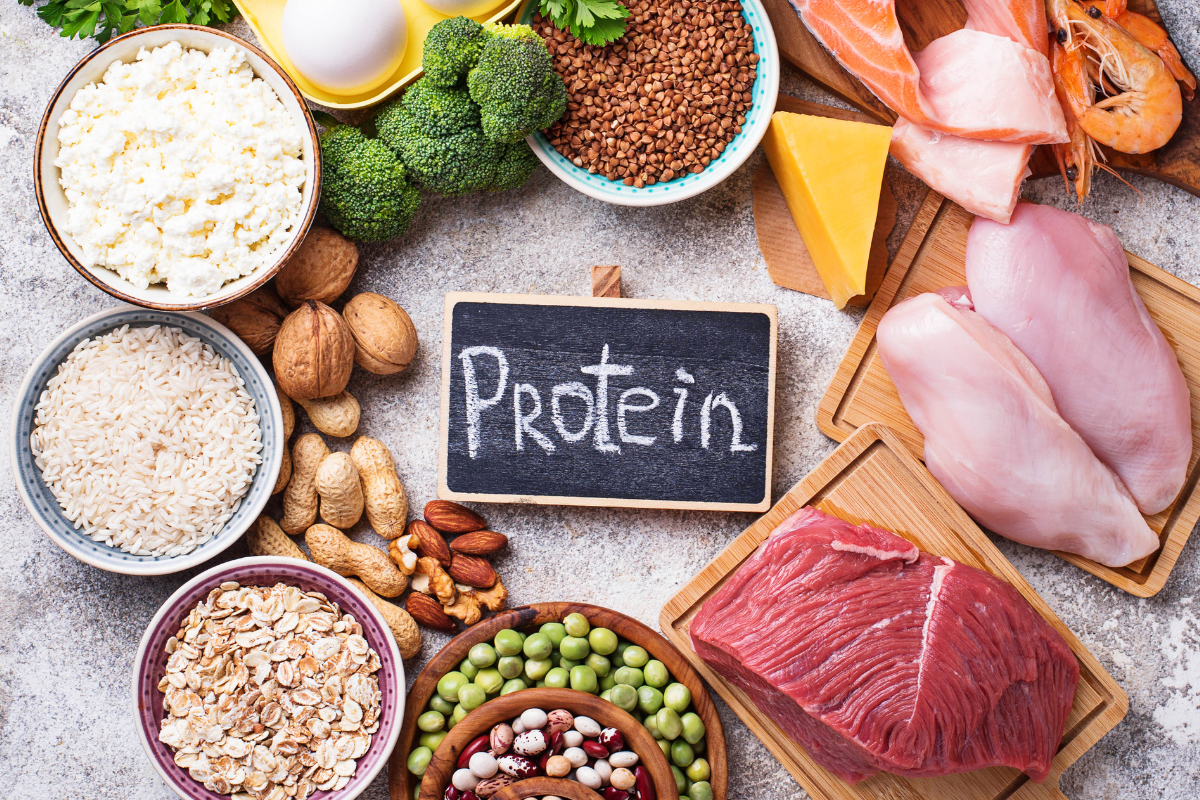How Much Protein Do You Really Need? A Guide for Fertility, Pregnancy, Postpartum & Menopause
Protein. It's the macronutrient we all know we need—but how much do you actually need for your body, your hormones, and your stage of life?
At OVU, we’re not just here to talk grams and macros—we’re here to talk about what real women’s bodies actually need during the stages of fertility, pregnancy, postpartum, lactation, and menopause. And yes, we also looked into what that means for your protein bar.
Let’s get into it.
Why Protein Is So Important
Protein is one of your body’s three essential macronutrients, alongside carbohydrates and fats. But unlike trendy diets that villainize one or the other, protein always keeps its seat at the table.
Why? Because protein is the building block of every single cell in your body. It helps build muscle, repair tissue, create enzymes, support the immune system, and yes—produce hormones. For women, this is especially crucial during life phases where the body is working overtime (hello, egg development, growing a human, breastfeeding, hormone fluctuations, and more).
How Much Protein Do Women Actually Need?
The general Recommended Dietary Allowance (RDA) for protein is about 0.36 grams per pound of body weight. For a 150-pound woman, that’s about 54 grams per day—but that’s just a baseline. During specific hormonal phases, your needs go way up.
Here’s a breakdown by life stage:
Trying to Conceive / Fertility Support
Protein goal: 60–80 grams per day
Protein supports egg health, hormone production, and blood sugar balance. Studies also suggest that higher protein intake may support better outcomes in IVF and improve metabolic health for people with PCOS.
Pregnancy
Protein goal: 75–100 grams per day (depending on trimester and body size)
Protein is essential for building fetal tissue, the placenta, and your growing blood supply. Needs increase in the second and third trimesters.
Postpartum Recovery
Protein goal: 75–100 grams per day
After giving birth, your body enters full-on recovery mode. Protein helps repair tissue, rebuild strength, and stabilize mood and energy while your hormones are shifting.
Lactation / Breastfeeding
Protein goal: 80–100 grams per day
Breastfeeding moms need more of everything—including protein. It helps produce breast milk and supports cell growth for both mom and baby.
Menopause / Hormonal Transition
Protein goal: 60–90 grams per day
As estrogen declines, so does muscle mass. Protein is key to preserving lean muscle, bone density, and metabolic health. It also helps balance blood sugar and mood, both of which can fluctuate during this transition.
So, How Much Protein Should Be in Your Protein Bar?
Not all protein bars are created equal. Some are basically candy bars in disguise, while others are packed with more protein than your body can absorb at once.
For most women, a bar with 10–12 grams of protein is ideal. It’s enough to stabilize blood sugar, keep you full between meals, and support hormonal health—without overdoing it. Pair it with balanced meals throughout the day, and you’ll easily meet your daily needs.
Why OVU Bars Hit the Sweet Spot
We formulated OVU Bars with real women in mind—especially those navigating hormonal transitions like fertility, postpartum, and menopause. Each bar contains:
-
10g protein from egg whites, almonds, peanuts, and quinoa
-
8g fiber to support digestion and estrogen metabolism
-
2/3 cup of real vegetables like sweet potato, carrots, and spinach
-
No added sugar, naturally sweetened with dates
-
100% Daily Value of folic acid, a key B-vitamin for fertility and cellular health
-
Maca root and myo-inositol, ingredients that may support hormonal balance and metabolic health
Whether you're heading to a fertility appointment, chasing toddlers, or navigating hot flashes—OVU Bars are the protein-rich, hormone-supportive snack you’ve been looking for.
Protein Goals by Life Stage
-
Fertility: 60–80g
-
Pregnancy: 75–100g
-
Postpartum: 75–100g
-
Lactation: 80–100g
-
Menopause: 60–90g
-
Ideal protein bar: 10–12g
Final Thoughts
Protein is non-negotiable when it comes to hormone health. From the cellular level to your energy, mood, and recovery, it fuels your cycles, your cravings, and your healing.
The good news? You don’t need to overthink it. With a whole-food, protein-rich bar like OVU, you’re not just eating for energy—you’re eating for hormonal harmony, one delicious bite at a time.
Author’s Note
As someone who has personally navigated fertility challenges—and dove headfirst into nutrition research along the way—I know that every bit of reliable information can bring relief and empowerment. It’s my hope that this post inspires you to explore your dietary choices with optimism and curiosity. After all, fueling your body well isn’t just about preparing for the possibility of pregnancy; it’s also about nurturing yourself in the here and now.
If you have questions or suggestions for future blog topics, feel free to reach out! The OVU community is all about shared experiences and knowledge. We’re in this together, and we can’t wait to support your healthy, hopeful journey.
(Disclaimer: This blog is for informational purposes only and does not constitute medical advice. OVU Bars are not intended to diagnose, treat, cure, or prevent any disease. Always consult with a healthcare professional for personalized recommendations.)





